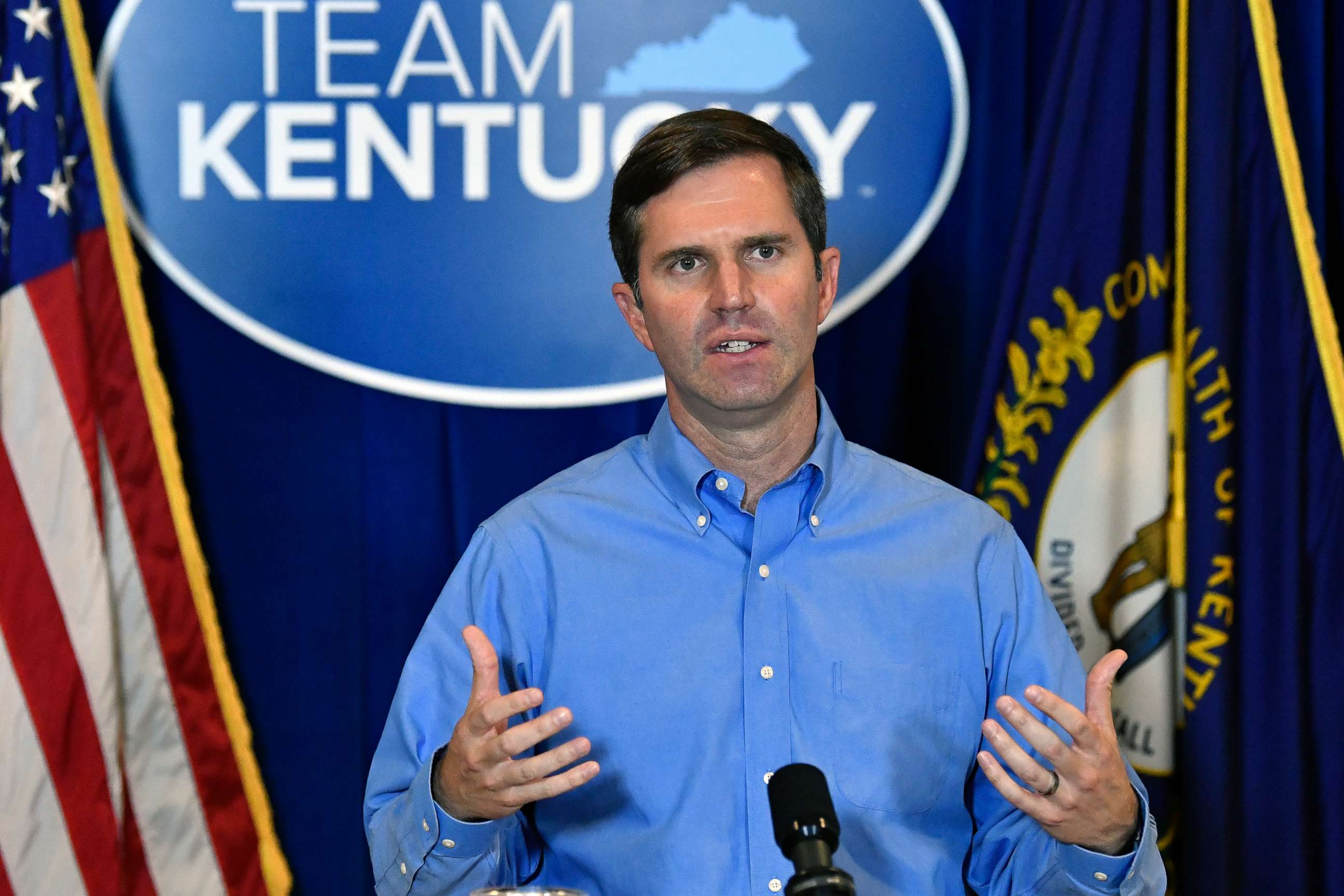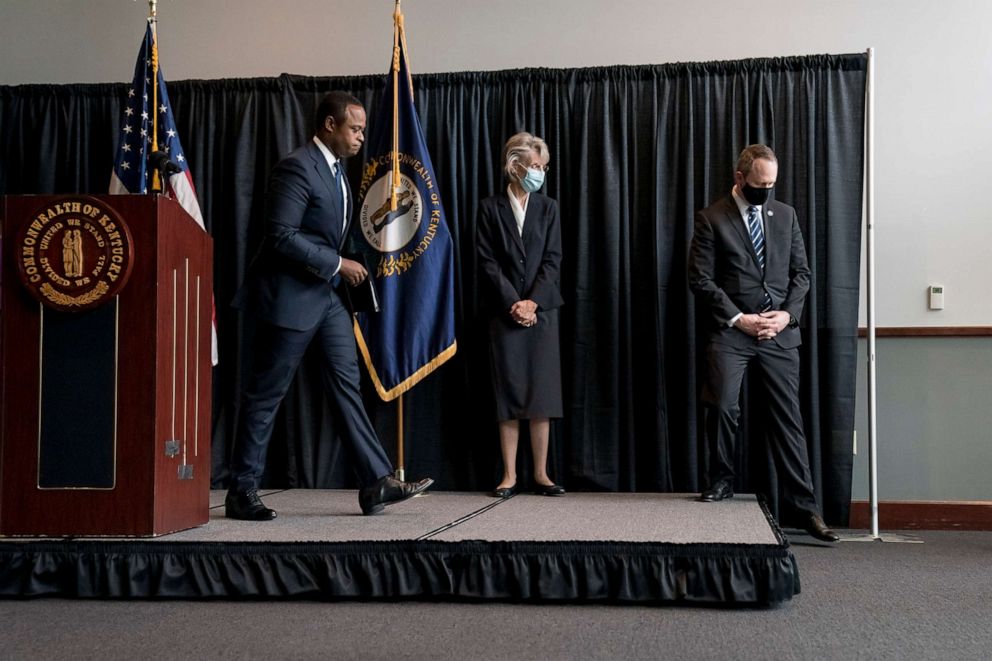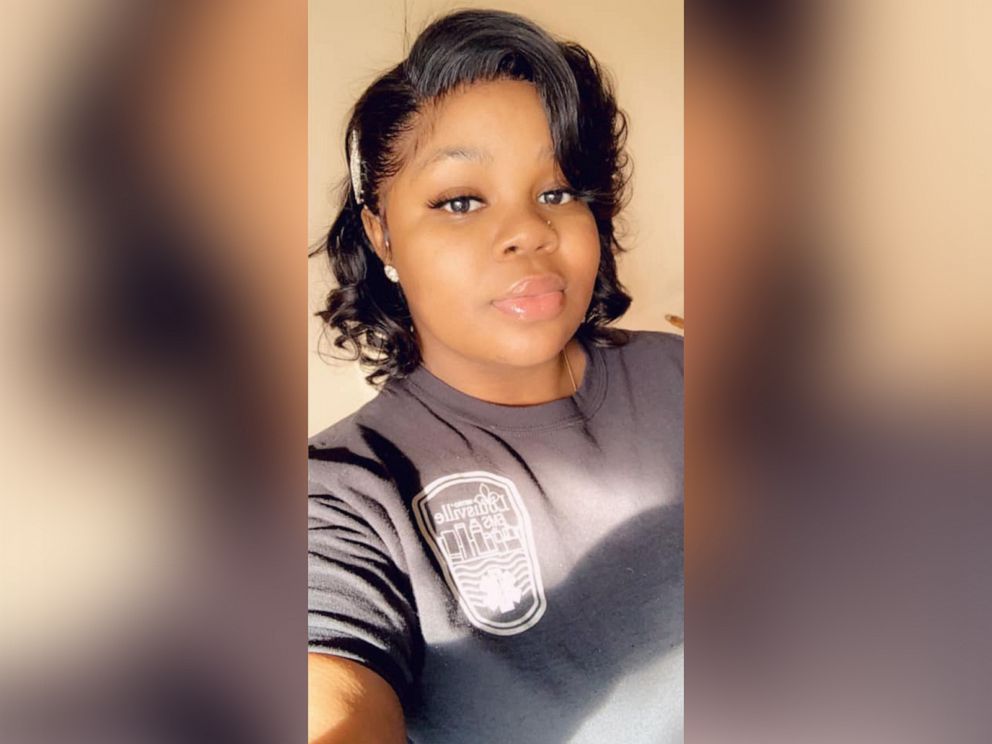Attorneys for Breonna Taylor's family ask Kentucky governor to appoint new special prosecutor
A grand jury indicted one officer in the shooting, but not for Taylor's death.
Saying their fight for justice is not over, attorneys for Breonna Taylor's family asked the governor of Kentucky to appoint a new special prosecutor to reopen the case and slammed state Attorney General Daniel Cameron for "intentionally" not presenting homicide charges against three white officers who fatally shot the 26-year-old Black woman in her own apartment.
The request was made in an open letter to Gov. Andy Beshear, and came a day after the public release of 15 hours of recordings of a three-day grand jury hearing which resulted in one officer being indicted on wanton endangerment charges, but not for Taylor's death.
"Unfortunately, Cameron did not serve as an unbiased prosecutor in this case and intentionally did not present charges to the grand jury that would have pursued justice for Ms. Taylor," reads the letter addressed to Beshear and posted online by attorneys for Taylor's family.
One of the attorneys, Benjamin Crump, posted a message on Twitter accompanying a link to the letter, saying, "This fight is NOT OVER! We DEMAND a new special prosecutor reopen #Breonna Taylor's case?"

In the letter, the family asks for 10,000 signatures in support of the request, and as of Sunday afternoon, more than 7,800 people had signed.
"It is past time for Louisville's and Kentucky's leaders to honor the value of her life by holding those responsible for her death accountable," reads the letter.
Beshear, who appointed Cameron to be the special prosecutor in the case, has yet to respond to the letter.
On Sept. 23, a Jefferson County grand jury indicted former Louisville police officer Brett Hankison on three counts of wanton endangerment in the first degree in a shooting that killed Breonna Taylor, but neither he nor the other two officers involved in the fatal encounter were charged in her death. The charges against Hankison were connected to bullets he fired that penetrated a wall of Taylor's apartment and went into the residence of a white family next door.
Louisville Metro Police Department officers Myles Cosgrove, Sgt. Jonathan Mattingly and Hankison unleashed a barrage of 32 shots into Taylor's apartment while serving a warrant around 1 a.m. on March 13.

Cameron said Cosgrove, who fired 16 times into Taylor's apartment, and Mattingly, who fired six times, were found justified in their use of deadly force because Taylor's boyfriend, Kenneth Walker, fired one shot at them first when they forced open the apartment door, hitting Mattingly in the upper thigh.
At a news conference following the grand jury's announcement, Cameron said, "This justification bars us from pursuing chargers in Breonna Taylor's death."
Cameron said last week that the only charge prosecutors recommended to the grand jury was wanton endangerment against Hankison, who was fired from the Louisville Metro Police Department in June for violating department policies during the shooting.
Hankison pleaded not guilty to the chargers during his arraignment on Sept. 28. Jefferson County Circuit Court Judge Ann Bailey Smith ordered Cameron's office to release the recordings of the grand jury hearing as part of discovery in Hankison's case.
On Friday, Cameron's office released 15 hours of more than 20 hours of recordings of what prosecutors presented to the grand jury.
Cameron said he was "confident" that the recordings would show that his office presented a thorough case.
"I'm confident that once the public listens to the recordings, they will see that our team presented a thorough case to the Jefferson County Grand Jury," Cameron said in a statement. "Our presentation followed the facts and the evidence, and the Grand Jury was given a complete picture of the events surrounding Ms. Taylor's death on March 13th."
Much of the controversy in the high-profile case has centered on whether police officers knocked on Taylor's door and identified themselves as police before using a battering ram to force open Taylor's door.
Walker claimed the officer neither knocked nor announced themselves before barging into the apartment. In a civil suit against the city and police department, Walker claimed he fired a warning shot with his licensed 9mm handgun because he thought the police officers were intruders.

But Cameron said statements by the officers that they knocked and announced themselves were corroborated by one independent witness who was near Taylor's apartment when the warrant was being executed.
Lawyers for Taylor's family say there are at least 11 other witnesses who never heard police knock on Taylor's door and make their presence known before entering the apartment.
A judge approved a "no-knock" warrant based on a sworn affidavit from a detective that an ex-boyfriend of Taylor's was sending packages of drugs to her apartment through the U.S. Postal Service.
No drugs were found in Taylor's apartment and lawyers for Taylor's family allege the warrant was secured with an affidavit that contained lies.
During the grand jury hearing, detectives testified that although they obtained a "no-knock warrant," officers were told to knock and announce themselves because they were informed in a pre-raid briefing that Taylor's goddaughter might be in the apartment.
The detectives also conceded that Taylor's ex-boyfriend, the target of the raid, was already in custody by the time officers arrived at Taylor's apartment.
Hankison, Mattingly, Cosgrove and other officers involved in serving the search warrant all testified that they knocked on the door several times and announced they were police before entering the apartment.
During his testimony before the grand jury, Mattingly said that when he entered the apartment he saw a man and a woman at the end of a hall and that the man was in a shooting stance. He testified that he heard a "boom" and "I can feel the heat in my leg." At that, he said, he returned fire.
The grand jury also heard a recording of an interview police conducted with Cosgrove.
In the interview, Cosgrove said he was standing in the threshold of Taylor's front door and was "immediately overwhelmed with bright flashes and darkness" and saw Mattingly fall to the ground. He said he opened fire upon noticing a "larger than normal human shadow" in the darkened apartment.
Cameron said Taylor was hit six times by bullets fired by Mattingly and Cosgrove, and that an FBI ballistics analysis showed that the fatal shot that hit Taylor came from Cosgrove's gun.
Prior to the grand jury's decision, the city of Louisville agreed to pay Taylor's family $12 million to settle a wrongful death lawsuit filed by Taylor's mother. The settlement also requires the city to institute a series of reforms in the police department in an attempt to ensure that a similar tragedy does not occur, including an overhaul of how officers obtain search warrants.




